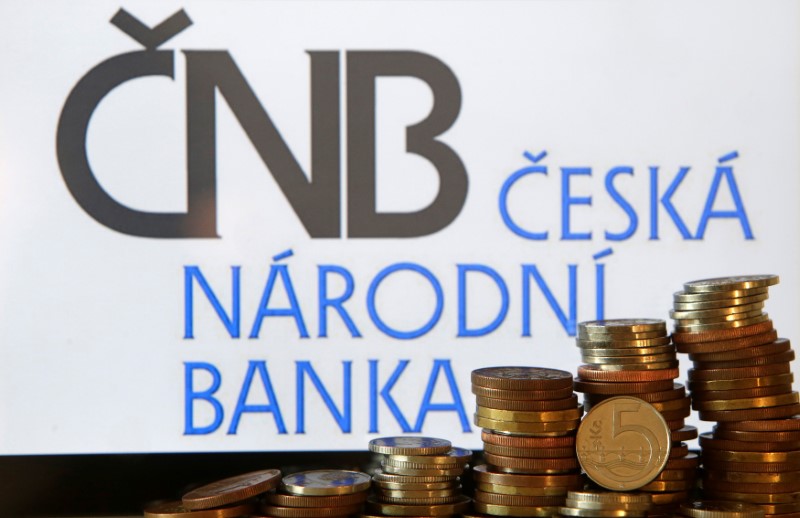PRAGUE (Reuters) - The Czech central bank is likely to keep interest rates unchanged on Wednesday and will instead deliver another hike when it has new economic forecasts ready in November, a majority of analysts said in a Reuters poll.
The Czechs have stepped ahead of Europe peers by shifting away from an ultra-loose policy. In April, the central bank abandoned a currency cap in place since 2013 and in August it hiked interest rates from near zero, the first rise in almost a decade.
With a fast-growing economy, wages surging and inflation sticking above target, central bankers have signaled they could raise borrowing costs further this year. Some have not ruled out voting for an increase at this month's sitting.
While five of 16 analysts in the poll forecast a rate hike this week, 10 saw a 25 basis point rise at the next meeting in November. One analyst said the fourth quarter was likely, meaning either November or December meetings.
"We expect a hawkish outcome form the upcoming September monetary policy meeting, which will prepare markets for a November hike," Komercni Banka chief economist Jan Vejmelek said.
The Czech National Bank (CNB) raised its main two-week repo
The crown (EURCZK=) has been surprisingly steady since being let free, gaining around 3.7 percent. But an overhang of positions, built by investors betting tens of billions of euros on crown gains, still weighs on it.
The Czechs must also watch the European Central Bank, which is maintaining bond buys in the market as part of its loose policy and has yet to formally communicate an end of it.
But the domestic economy is leading price pressures in the central European country. Inflation in August stood at 2.5 percent, above the central bank's 2 percent target.
The economy grew 4.7 percent year-on-year in the second quarter while its quarterly rise of 2.5 percent was a record. Wage growth of 7.6 percent in the second quarter was the fastest since 2008, before the global financial crisis hit.
Central bank board member Vojtech Benda told Reuters this month that economic developments showed the bank had scope for further monetary policy tightening.

Other board members have hinted at the need for a rate hike, despite the latest staff forecasts showing a policy move likely only next year.